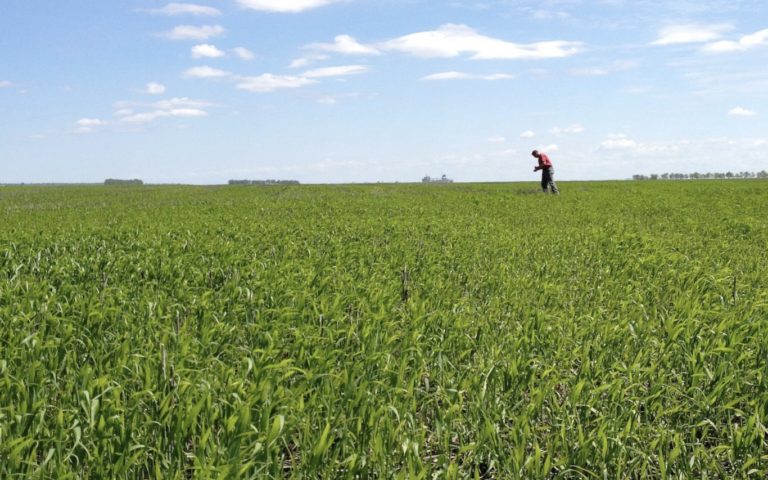
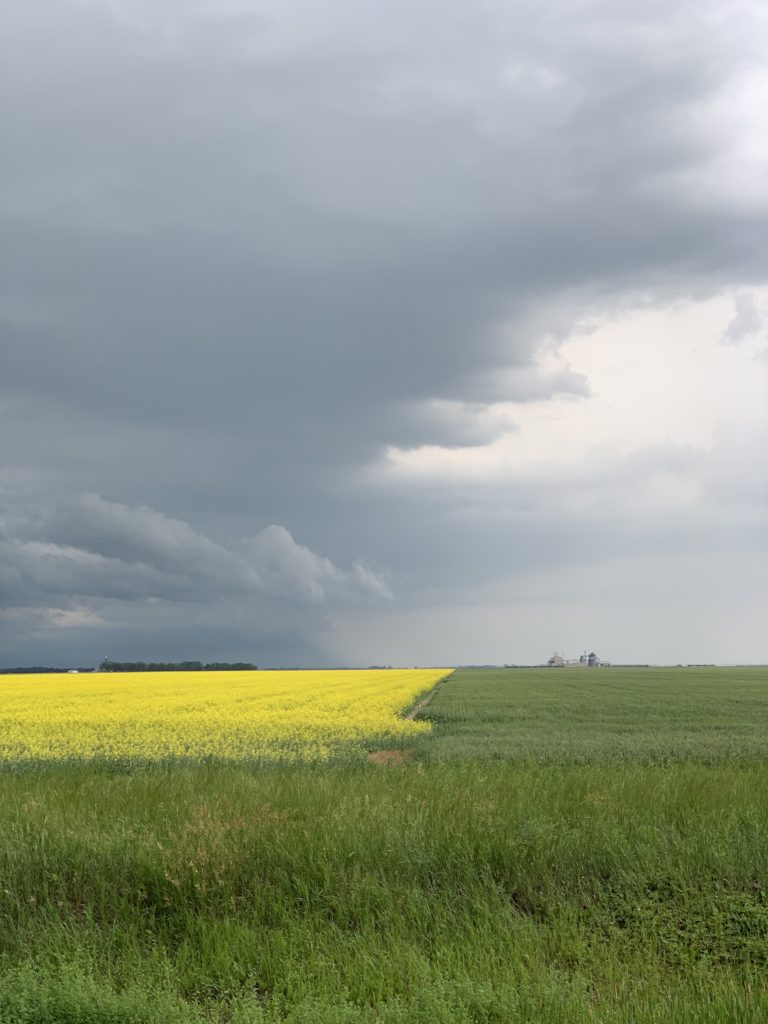
BEE FRIENDLY FARMING
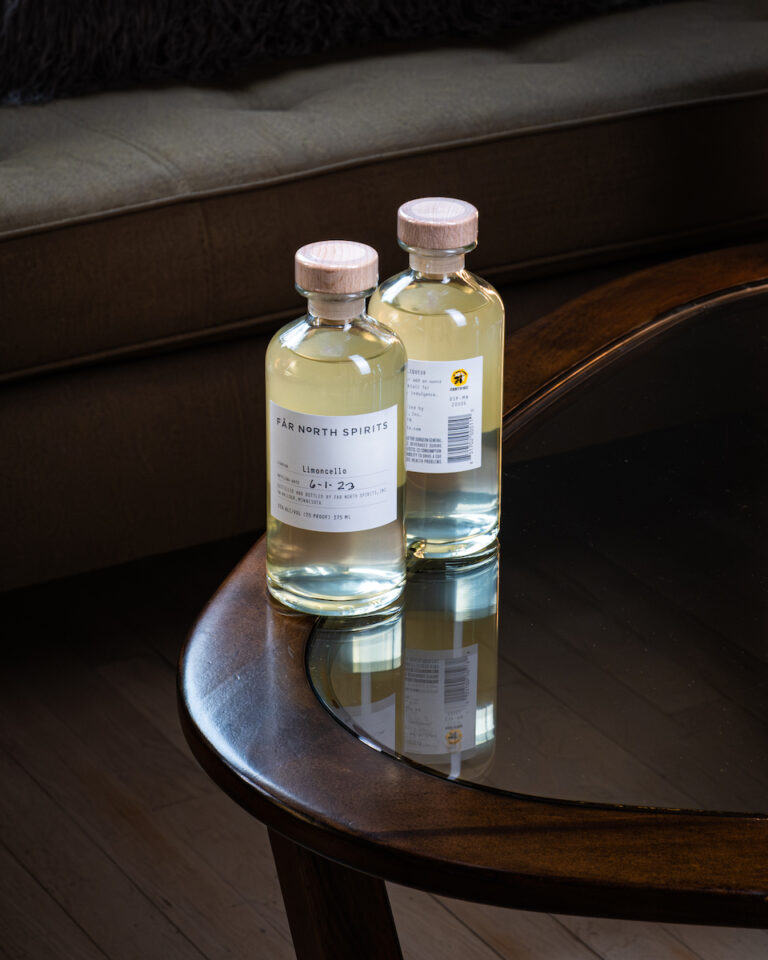
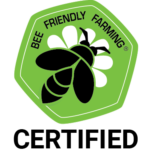
- good pollinator nutrition on at least three percent of its land
- different flowering plants throughout the growing season
- nesting habitat like shrubs and hedges
- a clean water source
- and, reduces or eliminates the use of chemicals
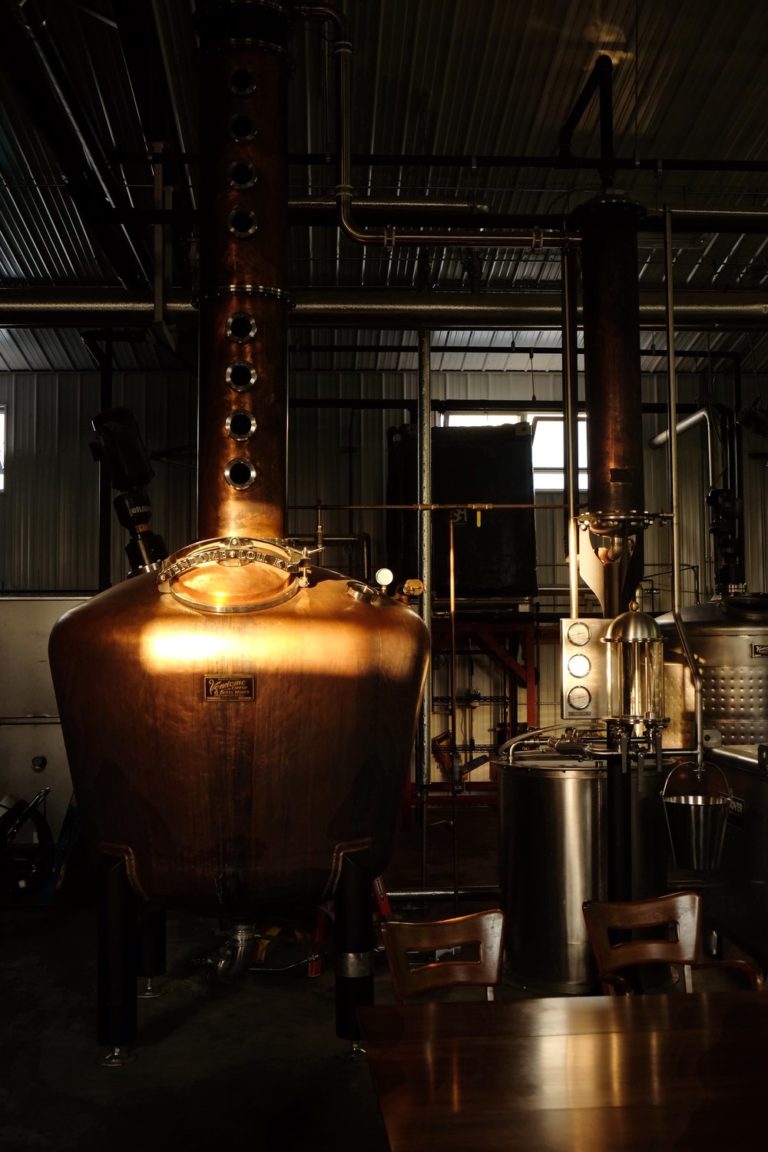
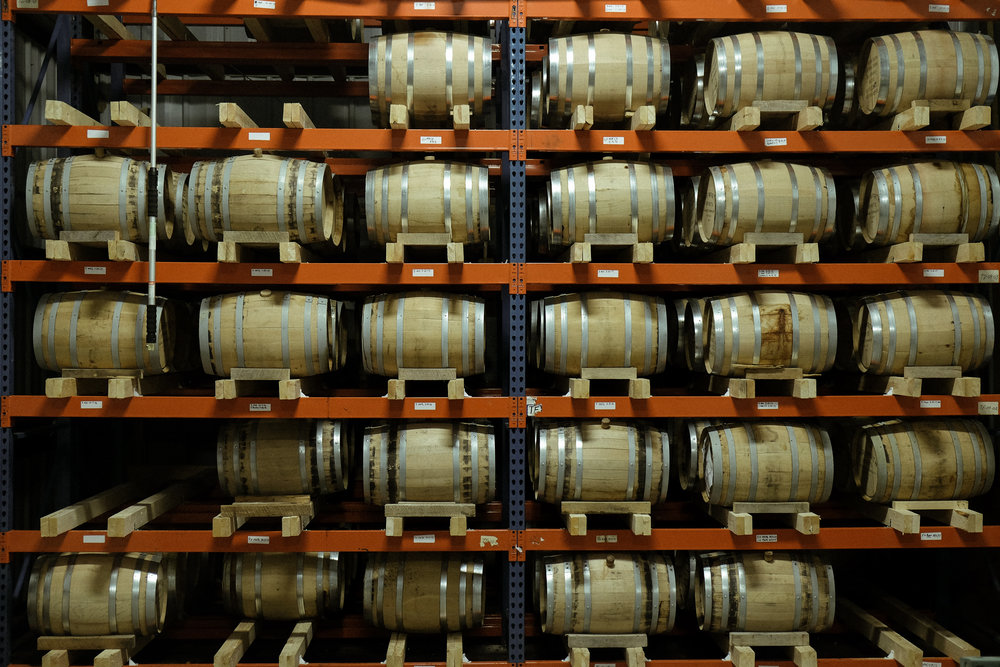
SUSTAINABLE SPIRITS
PRODUCTION + DISTILLING
All grains except malt barley are grown by the distiller within a mile of our distillery, and stored in bins on site. This eliminates the need for both the shipping and bagging of grain. After distillation, spent grains are picked up by a local cattle farmer for feed or spread on nearby fields. Because most of the starch has been consumed during fermentation, the high protein levels of spent grains make them an excellent fertilizer. In addition, cellulose is left behind after fermentation and distillation, this adds organic matter back to the soil, improving its health.
AT FAR NORTH SPIRITS, VERY LITTLE LANDFILL WASTE IS PRODUCED BY THE DISTILLERY.
The majority of the materials used in our production processes are either source-reduced, compostable or recyclable. We don’t even have a trash dumpster on site.
Our stills and mash cooker are steam heated. Steam is produced by a propane-fired steam boiler, the burner of which is over 95% efficient. Propane is clean-burning and more efficient fuel than even natural gas, from which it is derived. Steam condensate is collected and returned to the the system continuously, significantly reducing makeup water consumption.
Water used for mashing is collected from the cooling water system on the previous mash. The “hot” cooling water is siphoned off from the system into a steam heated tank that prepares it for the next mash, thereby reducing the number of BTUs necessary to bring it to mashing temp (raising the temperature of water from 140 °F to 200 °F takes less heat than bringing it from 50 °F to 200 °F).
Cooling water is recirculated in a closed loop system, and the distillery is located far enough north that evaporative cooling is all that is necessary. This eliminates the need for a more energy-intensive chilling system, another reason why production is increased during the winter months. Our cooling capacity for the cooling water is in extreme abundance just outside the building.
SOURCING
Mindful sourcing and careful selection of vendors nearly eliminates disposal concerns in the way of packaging. Botanicals and spices are sourced through a careful channel examination, with a particular focus on the sustainable production of the vendor.
Barrels are purchased from cooperages in Minnesota, which decreases transportation distances. Cooperages are also chosen for their responsible forestry practices.
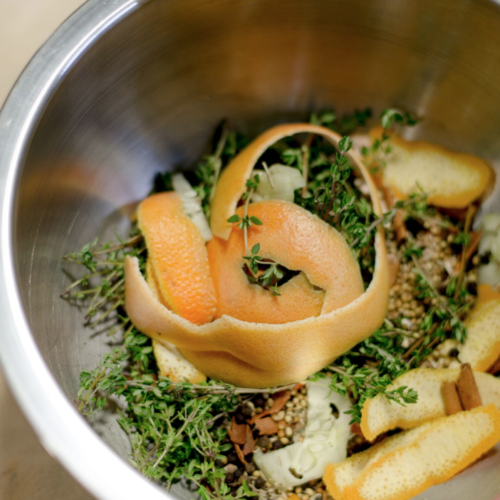
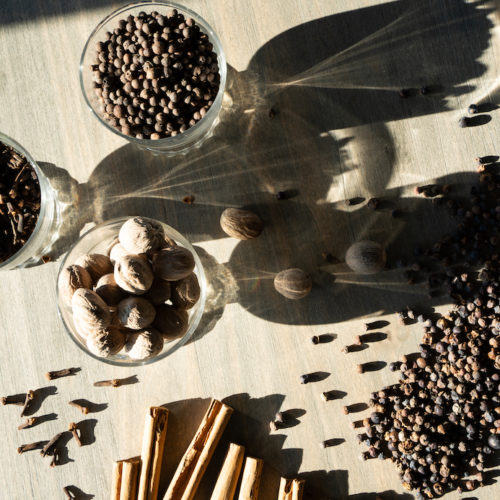
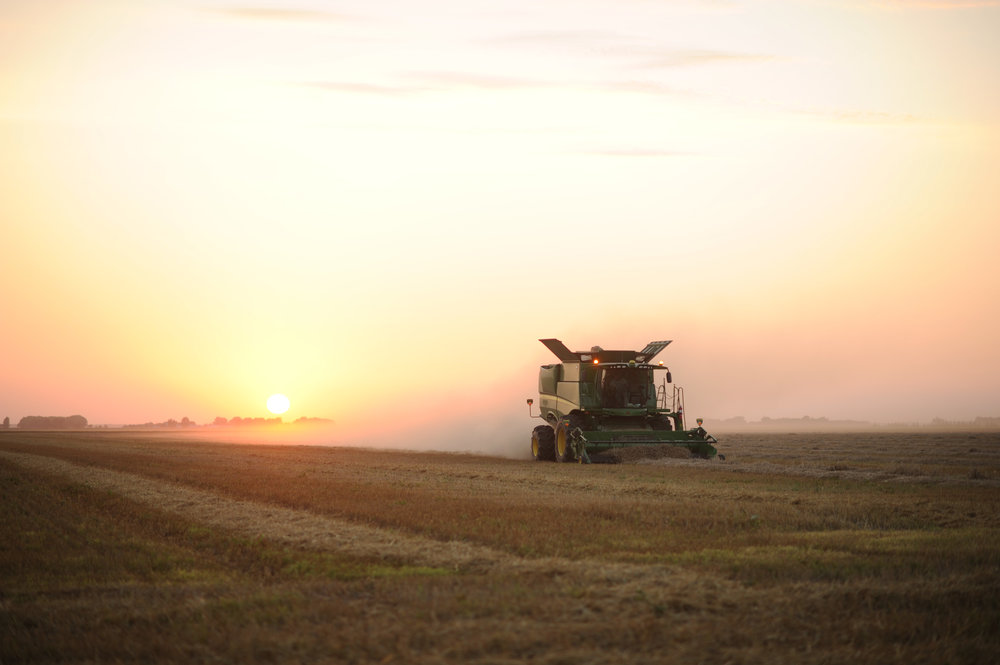
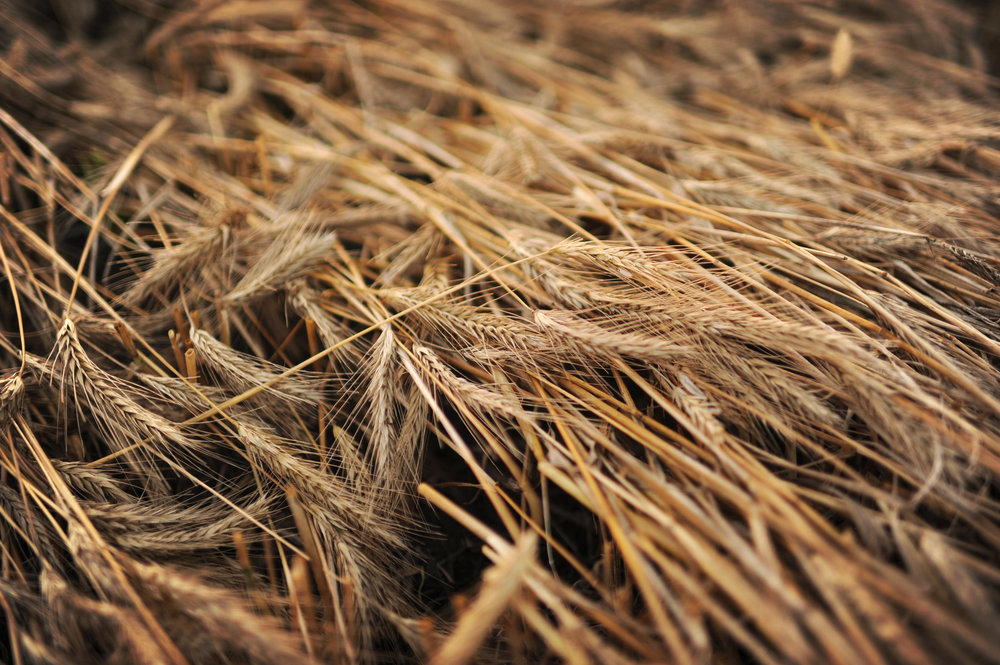
FARMING
Because crop yields do not need to be maximized for commodity sale, there are many advantages for sustainable agricultural practices. Our heirloom and organic hybrid corn requires significantly less chemical input than GMO corn.
Because rye is our principle raw material, we only grow corn every two years. This enables us to plant the corn field with a green manure cover crop then allow the soil to rest and digest the corn stalks. This eliminates the need for a constant rotation of GMO corn and soybeans and their subsequent inputs, as is currently the practice nearly nationwide.
Rye is a hardy crop that is also an allelopath. Due to its strength, rye chokes out the vast majority of weeds making the use of herbicides nearly eliminated altogether. Because we are growing rye for distilling and not milling, we are striving for the lowest protein levels possible (starch = alcohol). This means that fertilizer must be kept to a bare minimum, and ultimately it may even be possible to fulfill our fertilization needs through spent grains alone.
Rye is planted into canola stubble, using a no-till process and this has two distinct benefits. First, the stubble encourages the collection of snow during the winter, providing an insulating blanket for the rye. Second, it provides organic material which improves soil health for the following growing season.
SHIPPING
Our shipping-associated carbon footprint is significantly less than most distilleries, due to one simple fact: the bulk of our raw materials are grown outside our door. Consider this, 80 cases of bottled whiskey weighs 1,600 pounds. But the grain needed to produce that whiskey weighs 10,000 pounds. When grains are shipped across the country (and oceans) to make whiskey, that transport significantly increases the distillery’s overall carbon footprint.
Contrast this with a pallet of whiskey produced at an estate distillery. There is shipping associated with moving the bottled spirit to its final retail destination, but nearly none associated with the raw materials. It takes about one-sixth the transportation energy to move the whiskey from a Midwest farm distillery to a retailer on the coast, as it does to ship grain from the midwest to a coastal distillery.
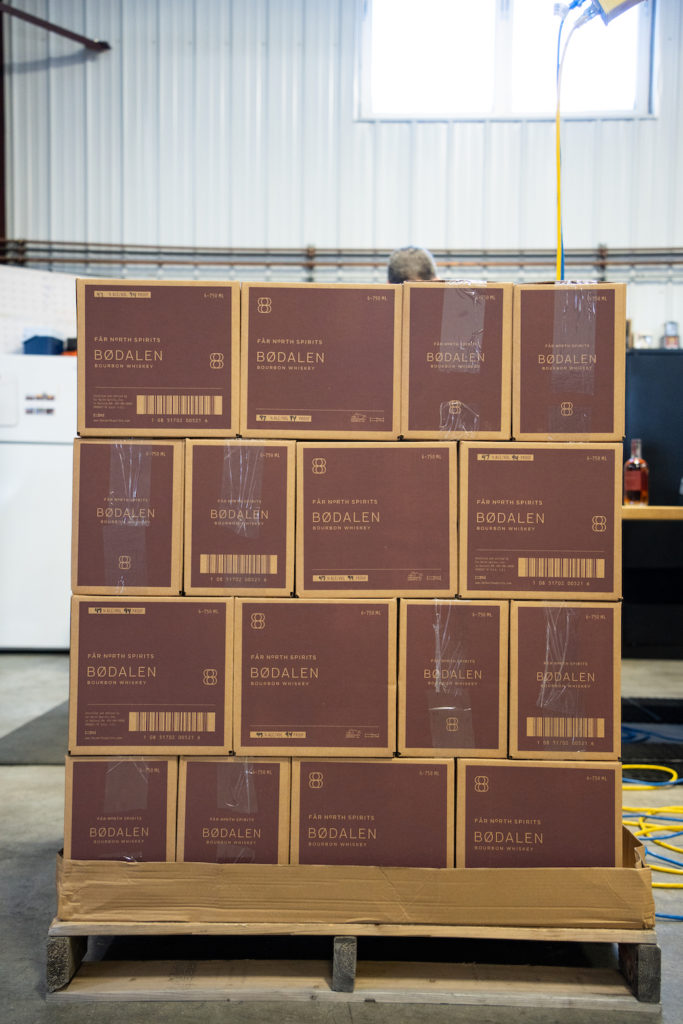
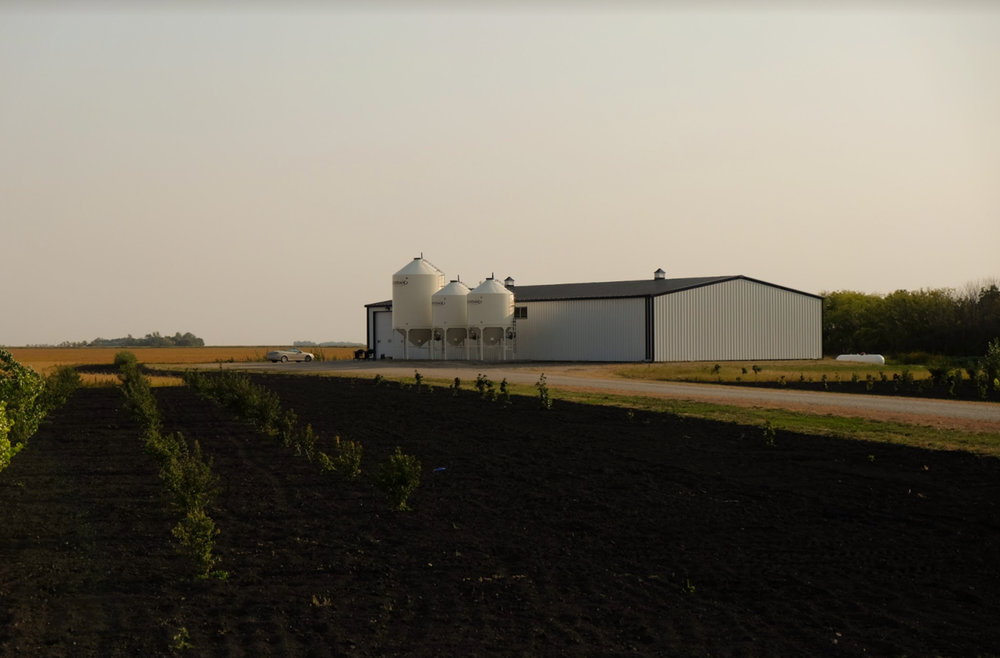
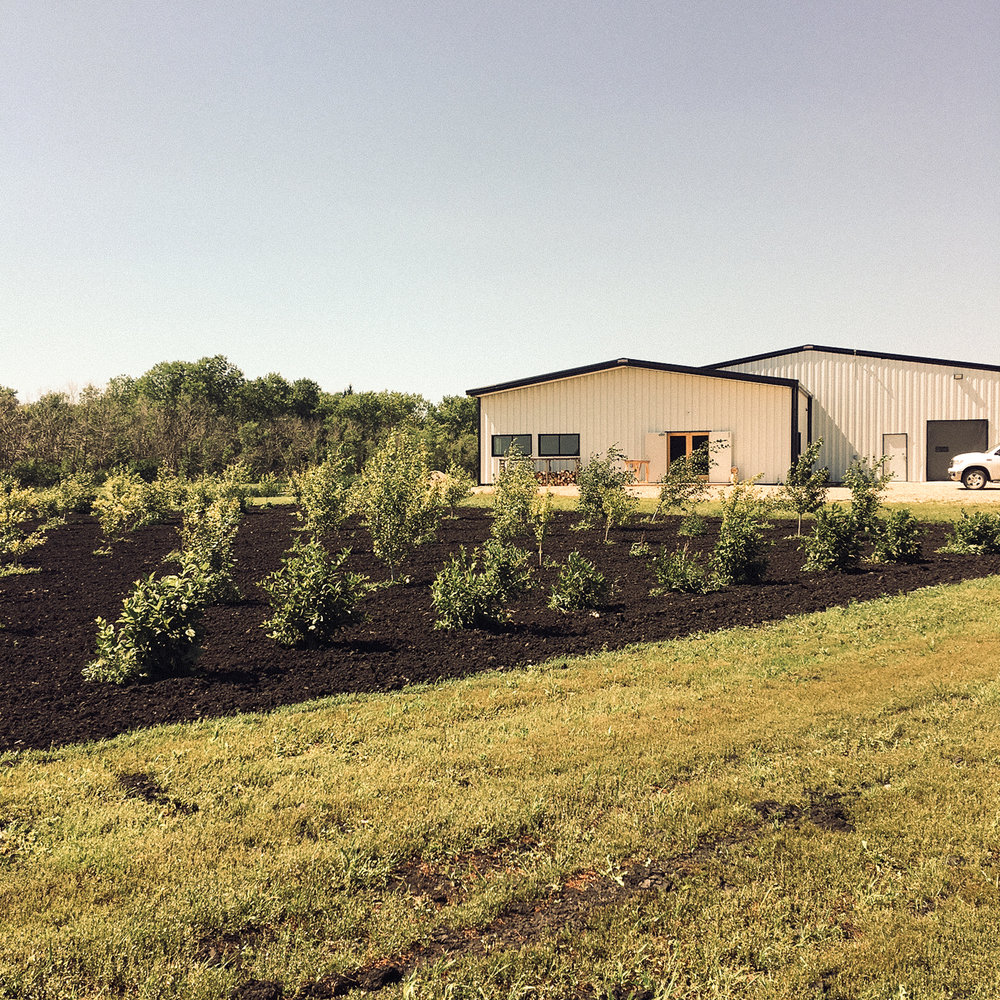
BUILDING & GROUNDS
Our distillery is an all steel construction, which significantly reduced construction waste on-site.
Heated with an in-floor, closed-loop glycol radiant system, this is one of the most efficient heating systems for a building of this size, requiring only a small, propane-fired boiler. Heating efficiency is increased by larger production runs in the winter months, when heat produced by the stills and mash cooker is not considered waste heat.
All distillery floor lighting is T5, which reduced the number of lamps and luminaries needed upon initial installation, and has decreased energy consumption.
We planted over six-hundred trees around Far North Spirits, with additional plantings of native prairie grass to act as buffer strips, erosion control, wildlife habitat and wind breaks. Wildflowers are an important part of these native prairie zones, as they attract bees and other beneficial pollinators, as well as fly and mosquito predators.
Cooling in summer is accomplished through strategically placed windows that open. The distillery is located in a level 3 wind zone, which provides ample air circulation on most days without the need for air conditioning.
Rain runoff from the building’s roof is channeled into ditches planted with native prairie wetland mixes. This practice both slows the flow of water, thereby decreasing erosion, and improves water quality by removing sediment and other potential contaminants. These ditches are also beginning to serve as nesting cover for wildlife.
